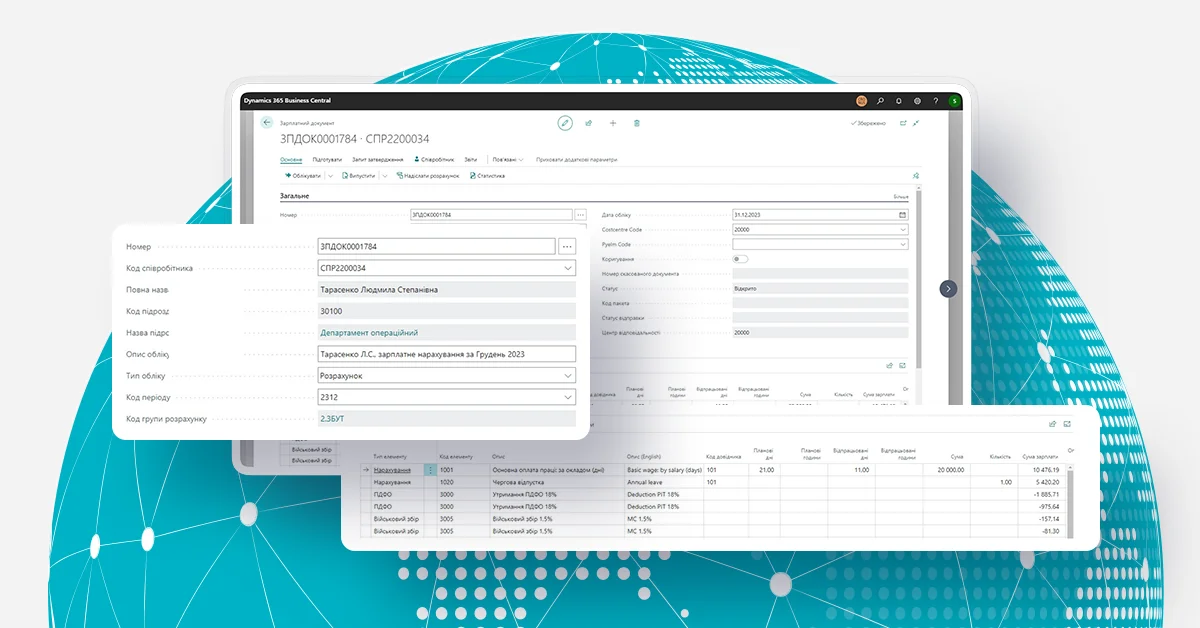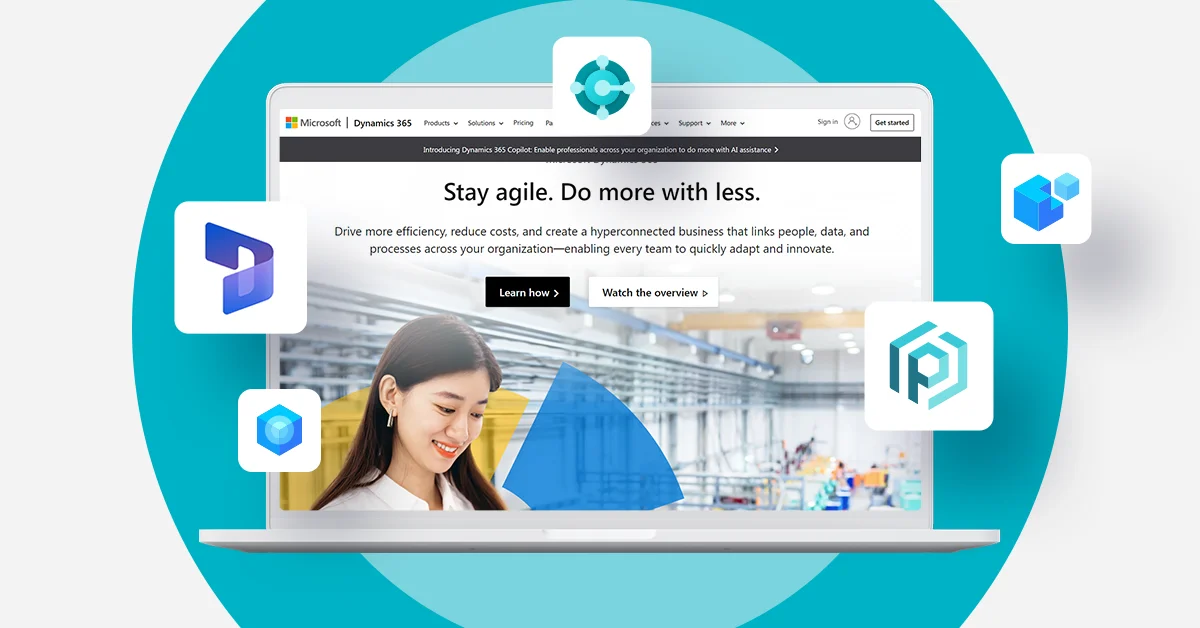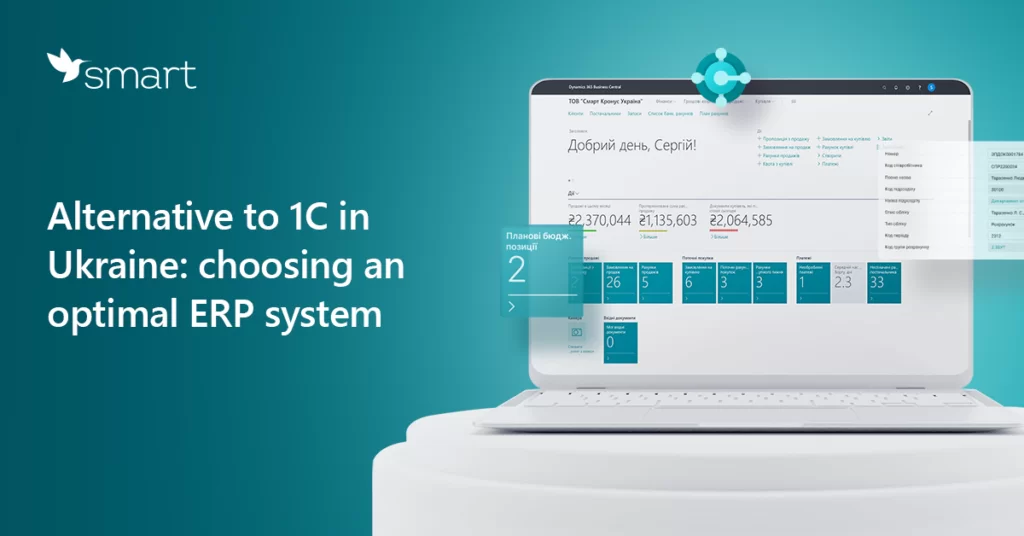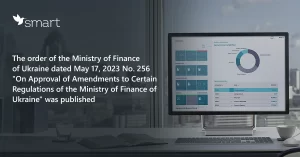Against the backdrop of tightened government sanctions on the distribution and use of russian software, Ukrainian businesses have found themselves trapped by their own inertia.
Despite the fact that the first legislative sanctions against russian software were introduced eight years ago, many Ukrainian companies have been in no rush to invest in alternative solutions or retrain their staff – and have simply kept using the old systems.
According to a 2022 report by OpenDataBot and Netpeak, 44 russian software products – including Bitrix24, Moy Sklad, and Mindbox – remained in demand on the Ukrainian market. Among these, the 1C and BAS accounting systems were leading the way. BAS, in fact, is a rebranded version of 1C – a move by russian developers designed to bypass sanctions and maintain their presence in Ukraine.
And it’s not just private companies that have remained loyal to russian software. An analysis of procurement data from the Prozorro public procurement system shows that, between 2015 and 2024, Ukrainian state institutions spent 313.64 million UAH from the national budget on the maintenance of russian accounting software – 59.42 million UAH of which was spent in 2024 alone.
Why Finding a Ukrainian Alternative to 1C Is a Critical Business Decision
Continuing to use software developed in an aggressor state is like setting off a time bomb. No one can predict when exactly the enemy might decide to weaponize their accounting system to wipe out an individual business or even an entire industry.
By replacing 1C with reliable, high-quality software, Ukrainian companies can strengthen their positions in the market and avoid a range of serious risks, including:
- System-related risks – the accumulation of bugs due to the lack of updates; potential incompatibility with newer versions of other software in your IT ecosystem or with updated hardware; and non-compliance with ongoing legislative changes.
- Cybersecurity risks – using software developed in a country notorious for its global-scale cyberterrorism puts companies at constant risk of reputational damage, especially due to non-compliance with modern data protection standards and the potential loss of personal data. There’s also the danger of sensitive business information leaking because of poor protection against cyberattacks and the difficulty of timely detecting spyware.
- Regulatory risks – the threat of fines and other penalties could rise significantly if the Ukrainian government passes Bill No. 11492, “On Amendments to the Law of Ukraine ‘On Sanctions’”, which proposes banning the use of certain software products and access to electronic information resources linked to sanctioned entities.
1C Alternative in Ukraine: How to Choose and What to Look For
Since the start of the full-scale invasion, the search for alternatives to russian software – particularly 1C and BAS, long favored by the Ukrainian business community – has become a mainstream trend on the Ukrainian software market.
Experts from SMART business, a leading Microsoft partner, have summarized the most frequently asked questions they encounter when working with companies looking for 1C alternatives in Ukraine and planning to migrate from russian software to a modern ERP system.
Here are the answers to the most common questions.
Which Business Automation Solutions Can Be Considered 1C Alternatives in Ukraine
First and foremost, it’s important to clarify whether the widespread belief that 1C is the main competitor to Microsoft Dynamics 365 Business Central in the Ukrainian market is actually correct.
When comparing the russian-made 1C platform to popular Ukrainian and Western ERP systems – including Microsoft solutions – it’s crucial to highlight the fundamental difference in their concepts.
1C was originally designed as accounting software and only later evolved into an enterprise management solution in response to market demand. Microsoft Dynamics 365 Business Central, on the other hand, was developed from the very beginning as a comprehensive business management platform.
Therefore, calling Microsoft’s ERP system an “alternative to 1C” is only appropriate in the context of replacing russian software. Conceptually, however, it is a comprehensive solution that enables businesses to reach a new level of operational efficiency.

What Requirements Should a 1C Alternative Meet to Ensure Integrated Business Process Management?
When choosing an ERP system to replace 1C, it’s essential to make sure the solution meets three key requirements:
- It must support simultaneous management of financial, tax, accounting, and HR processes.
- It must comply with both international standards and the requirements of Ukrainian tax and labor legislation. In this context, release reliability is especially important – meaning the system must be updated in sync with changes in legislation.
- It must serve as an effective tool not only for resource planning but also for controlling both individual business processes and the business as a whole.
Dynamics 365 Business Central on Microsoft’s Platform – An Alternative to 1C That Exceeds Expectations
Microsoft Dynamics 365 Business Central fully meets all of the above requirements and consistently earns top marks from industry experts. For example, in its 2022 ERP system rankings, Forbes named Microsoft’s solution the best in its class across all of these criteria.
In addition, Statista’s 2023 research identified Microsoft Dynamics 365 Business Central as the most popular ERP system among organizations of all types and sizes. The product enjoys strong demand both among large enterprises with tens of thousands of employees and among small and medium-sized businesses.
That’s why this solution can confidently be called an international-class alternative for companies seeking to replace 1C in Ukraine – or to find a 1C alternative in Europe.
Comparative Overview: Microsoft’s ERP as a 1C Alternative
Businesses tend to rely on arguments that are directly relevant to their particular case. So let’s compare the functional capabilities of these two software solutions.
By choosing Microsoft Dynamics 365 Business Central as an alternative to 1C, you won’t have to sacrifice any of the essential features for financial accounting, procurement and supply chain planning, or production automation that the russian product offers.
In addition, Microsoft’s ERP solution provides modules for project management, customer relationship management, and integration with banks and financial institutions.
On top of that, Business Central comes with a wide range of additional features and advantages, including:
- Cloud capabilities and Microsoft ecosystem
- Seamless access to Microsoft 365 apps (Excel, Word, Outlook, Teams).
- No dependency on physical servers.
- Built-in Power BI tools for advanced data analysis and visualization.
- Global reach and multi-currency support
- Support for more than 100 languages and availability of localizations.
- Multi-currency functionality and consolidated reporting for international companies.
- Compliance with international accounting standards (IFRS, GAAP).
- Advanced integration and enhanced analytics
- Integration with other essential business software, including CRM
- Native integration with Azure and access to a vast selection of ready-made applications via Microsoft AppSource for extended functionality.
- AI-powered tools for forecasting, financial performance analysis, and risk assessment.
- Process automation, including AI capabilities
- Microsoft actively invests in Power Platform, which gives users no-code tools for business process automation, data analysis, and the creation of custom mobile and web apps.
- Use of AI and automated recommendations for financial calculations and procurement planning based on historical data.
- High level of security and data protection
- Compliance with global cybersecurity standards and the European GDPR data protection regulation.
- Built-in access control and audit trail mechanisms for easy operational audits.
- Automated release updates without the need for manual intervention, unlike 1C.
The availability of a Ukrainian localization makes Microsoft Dynamics 365 Business Central an ideal 1C alternative in Ukraine – while offering businesses a strong foundation for growth and scalability.
The solution allows companies to maintain records both in Ukraine and across 180 other countries, making it perfectly suited for small, medium, and large enterprises operating in manufacturing, logistics, trade, and retail.
All these capabilities make Business Central not just an exceptionally efficient tool for solving core business management tasks, but also a secure, stable, user-friendly, flexible, and scalable alternative to 1C for businesses of any size.

Business Central – Not Just a 1C Replacement, but a Global-Class Alternative
Unlike ERP solutions developed by local vendors, such as 1C and BAS, Microsoft Dynamics 365 Business Central can be deployed quickly and easily beyond Ukraine’s borders, as the system is fully compliant with the tax accounting standards of 104 countries. In other words, it’s a single ERP solution for running your business virtually anywhere in the world.
With Business Central, setting up financial and operational processes in a new country – for example, Poland – can take less than a week. No matter where your company’s branches are located, you’ll always be able to receive consolidated financial reports and centrally manage business processes, without the need to configure the system separately for each country.
So, if your company is planning to enter foreign markets, it’s worth choosing an international system rather than a local one. The functionality of Business Central is designed from the ground up to meet the requirements of most global markets. This is largely thanks to its support for multi-language and multi-currency configurations, as well as compliance with international accounting standards (IFRS).
With built-in features for handling multi-currency operations and managing international financial transactions, Business Central enables companies to easily integrate local accounting requirements into their overall business system. It also opens the door to joining global supplier and customer networks.
In contrast, solutions from local vendors like 1C and BAS are typically designed to meet the needs of a single country, making international expansion much more complicated.
Choosing an alternative to 1C from a global vendor is not only about optimizing your current business processes in line with international best practices. It’s also a smart investment in your company’s future – opening opportunities for growth, scalability, and seamless entry into new markets.

Is Business Central a Suitable Alternative to 1C for Your Company?
In September 2023, Statista estimated Microsoft Dynamics 365 Business Central’s share of the global ERP market at 87%. Researchers attribute this remarkable popularity to the fact that the product is equally well-suited for companies of all sizes.
Business Central as a 1C Alternative for Small Businesses: Key Benefits
For small businesses (up to 50 employees), the primary expectations from software solutions are easy deployment and use, minimal maintenance costs, and flexibility to adapt to changing business processes. With these priorities in mind, Business Central offers small companies the following key advantages as a 1C alternative:
- No expenses for IT infrastructure or its maintenance, thanks to a subscription-based SaaS model.
- Scalability with minimal adjustments and costs.
- Simple integration with popular services without additional expenses.
Business Central as a 1C Replacement for Midsize Companies
For midsize businesses (50–250 employees), the focus shifts to advanced functionality.
These companies typically require modules for inventory management, sales, and logistics, often all at once. They also actively use CRM systems and need detailed financial reporting and budgeting. On top of that, they are constantly thinking about market expansion and adaptability. Given these requirements, Business Central offers the following advantages as a 1C replacement:
- Supports international operations out of the box thanks to multi-currency functionality, localizations for most countries, and compliance with international standards (IFRS, GAAP).
- Offers a wide range of tools for process automation and advanced, including predictive, analytics.
- Ensures scalability without the need for significant customization.
A Modern ERP System – A 1C Alternative for Large Enterprises and Corporations
Large businesses expect ERP systems to deliver end-to-end management capabilities across core operations: finance, logistics, manufacturing, procurement, and seamless global integration with subsidiaries and partners.
They also require powerful analytics tools for forecasting based on big data, along with a high level of security and compliance with international standards.
That’s why they choose Microsoft Dynamics 365 Business Central, highlighting the following key benefits:
- Compliance with:
- International financial reporting standards (IFRS, GAAP),
- The U.S. Sarbanes-Oxley Act of 2002 (SOX), which defines accounting and reporting requirements to ensure investor confidence,
- The European General Data Protection Regulation (GDPR).
- Scalability without the need for major technical modifications.
- Built-in powerful analytics tools and advanced process automation features.
Migration Made Simple: Key Steps for Replacing 1C with ERP Business Central
As a leading Microsoft partner, SMART business not only helps deploy the solution within your company but also supports clients at every stage of the journey. This hands-on support ensures a smooth migration process – without disrupting business operations – and allows for seamless adaptation for your team.
When necessary, the system can be customized to meet the specific, non-standard requirements of your business.
It’s become standard practice for us to offer training, workshops, webinars, and academies for our clients and product users. These programs provide the opportunity to explore both the general capabilities of Microsoft solutions and their specialized use cases.
Migration Mechanics: Replacing 1C
When it comes to migrating from 1C, the process is not straightforward, primarily due to differences in accounting frameworks, databases, and accounting policies.
This is especially true for semi-automated migrations, where data is manually exported from 1C and imported into Business Central. This approach introduces risks of inaccurate mapping of accounting policies or incorrect financial and operational data settings.
Additionally, this method creates a heavy workload for staff, extends the timeline for implementation, and significantly increases the risk of errors.
To address these challenges, SMART business has developed a direct connector that allows data migration to be completed quickly and with minimal risk. This connector automates the mapping process for accounts, financial transactions, and accounting policies.
The result? A fast, accurate migration process with minimal human error.
Alternatively, businesses can opt for self-deployment of the out-of-the-box cloud solution. SMART business has made this process as simple as possible by providing ready-made templates.
When it comes to replacing 1C for financial and HR automation and reporting, SMART business offers tailored solutions:
SMART Accounting – a solution designed for accounting and tax accounting in line with international standards and local legal requirements. With SMART business localizations for Ukraine, Poland, Moldova, Azerbaijan, Georgia, Cyprus, Malta, the UAE, and a wide range of Microsoft-supported regions, businesses can easily scale into new international markets as needed.
SMART Payroll – a reliable solution for efficient HR management and payroll processing. It enables automation of personnel administration, ensures compliance with local labor laws and regulations, and stays up to date with legal changes thanks to regular updates and ongoing system support.


